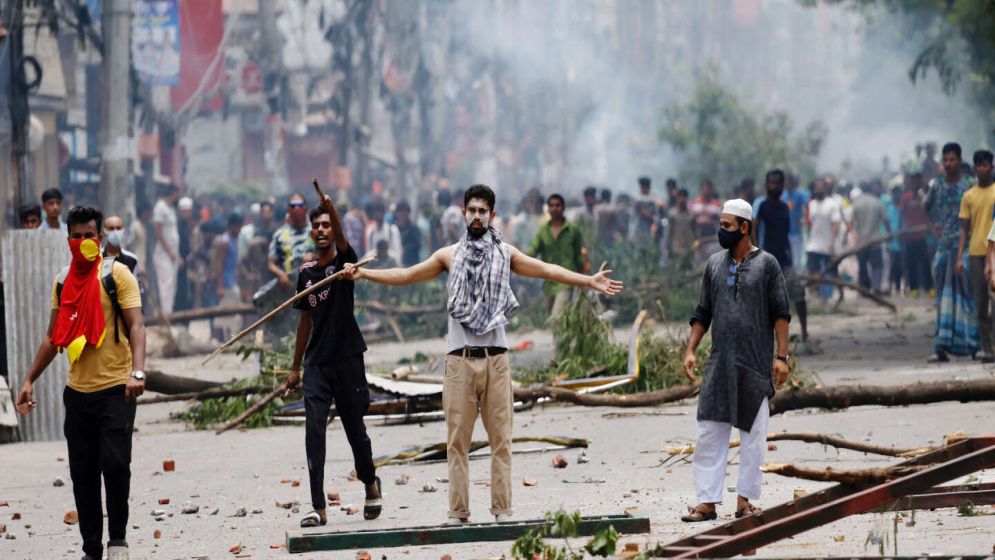Violent crackdown on student protests tarnishes Awami League’s image

The Bangladesh Awami League and its government are facing a significant image crisis following a violent crackdown on a student-led movement demanding quota reform.
Since July 15, deadly clashes have erupted between police and predominantly student protesters, who have been advocating for the abolition of a quota that reserves 30 percent of government jobs for the relatives of freedom fighters.
A press release dated July 21 and signed by Abdul Quader, a coordinator of the anti-discrimination student movement, reported that over 300 people have been killed in the clashes. Initially, the students were protesting peacefully around Dhaka University and Shahbagh.
However, the situation escalated when law enforcement and members of the Bangladesh Chhatra League (BCL), the student wing of the ruling Awami League, launched violent attacks on the protesters, particularly targeting female students.
The brutality of the attacks has drawn widespread condemnation, including from within the Awami League. Critics compare the actions of the BCL to the atrocities committed by Pakistani forces during the 1971 Liberation War.
A viral photo posted by Facebook user SH Hamja highlights this comparison, showing a BCL activist attacking a female student. The accompanying caption reads, “There is no difference between Chhatra League and Pakistani force.”
Another Facebook user questioned, “Is it 1971 or 2024?” alongside a photo of a BCL member hitting a female student with a stick.
Awami League insiders attribute the crisis to several poor decisions by party leadership.
General Secretary Obaidul Quader’s directive for the BCL to suppress the students “by any means” led to an escalation in violence. Prime Minister Sheikh Hasina’s controversial remarks, suggesting that only the descendants of freedom fighters should benefit from the quota system, further fueled the unrest.
“Will the sons and daughters of freedom fighters get quota advantages or the descendants of Razakars? This is my question to the countrymen,” Hasina said during a recent press conference, sparking widespread backlash among the student protesters.
The violence, particularly the use of live ammunition by law enforcement, has left over 300 people dead and has severely damaged the Awami League’s reputation.
Once celebrated for its contributions to Bangladesh’s independence and development, the party now faces criticism for its handling of the protests.
A senior Awami League leader, speaking on condition of anonymity, lamented the damage to the party’s image.
“Our party had a good image because of our development work over the past decades, but now our reputation has reached a zero-sum game. I don’t know how we will recover it,” the leader said.
Despite a recent Supreme Court ruling in favor of the students’ demands for quota reform, the protests continue.
The students have vowed to continue their movement until their demands are fully met. They also call for an apology from Prime Minister Hasina for her remarks about Razakars.
The Supreme Court's ruling states that 93 percent of government jobs will be based on merit, with five percent reserved for freedom fighters' descendants and two percent for other quotas.
Protesters argue that the previous quota system was discriminatory and favored supporters of Hasina’s Awami League.
Hasina, however, has defended the quota system, asserting that veterans of the 1971 war and their families deserve the highest respect, regardless of their political affiliations.
—-

